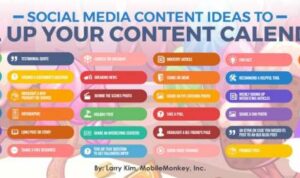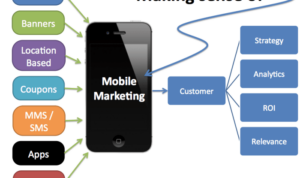Engagement on Social Media takes center stage, inviting readers into a world of digital interaction and brand building. From boosting visibility to creating loyal customers, the impact is undeniable.
As we delve deeper, we explore the various types of engagement, strategies to boost interactions, and the importance of measuring these efforts. Get ready to elevate your social media game!
Importance of Engagement on Social Media

In today’s digital age, engagement on social media plays a crucial role in the success of businesses. It goes beyond just likes and shares, as it involves building meaningful connections with the audience, driving brand visibility, and fostering loyalty among customers.
Impact on Brand Visibility and Reach
Engagement on social media directly impacts a brand’s visibility and reach. When users interact with a brand’s content by liking, commenting, or sharing, it increases the likelihood of that content being seen by a wider audience. This not only helps in reaching new potential customers but also reinforces the brand’s presence in the minds of existing followers.
Building a Loyal Customer Base
Engagement is key to building a loyal customer base. By actively engaging with customers through responding to comments, addressing concerns, and providing valuable content, businesses can create a sense of community and trust. This, in turn, leads to increased customer retention, repeat purchases, and positive word-of-mouth referrals.
Types of Social Media Engagement
Social media engagement comes in various forms, such as likes, comments, shares, and more. These interactions are crucial for brands to connect with their audience and build a loyal following.
Likes
Likes are a simple way for users to show their approval or agreement with a post. They are often seen as a quick and easy form of engagement, but they can still indicate interest and support for the content.
Comments
Comments allow users to engage in conversations with the brand or other users. Brands can use comments to gather feedback, answer questions, and create a sense of community around their content.
Shares, Engagement on Social Media
Shares are powerful because they help content reach a wider audience. When users share a post, it shows that they found the content valuable enough to pass along to their own followers, increasing the brand’s visibility.
Examples of Successful Engagement Strategies
- Wendy’s Twitter account is known for its witty replies and humorous interactions with followers.
- Starbucks encourages user-generated content by featuring customer photos on their Instagram page.
- Airbnb created the #WeAccept campaign to promote diversity and inclusion, sparking meaningful conversations and engagement.
Comparing Effectiveness
Each type of engagement has its own strengths and benefits. Likes are a quick way to show support, comments allow for direct interaction, and shares expand reach. Ultimately, a combination of all three is usually the most effective in creating a well-rounded engagement strategy.
Strategies to Boost Engagement

To increase engagement on social media platforms, it’s essential to implement effective strategies that resonate with your audience. Creating interactive content and leveraging user-generated content are key components in boosting engagement levels.
Utilize Visual Content
Visual content, such as images, videos, and infographics, tends to generate higher engagement rates compared to text-only posts. Incorporate eye-catching visuals that are relevant to your brand and resonate with your target audience.
Host Contests and Giveaways
Contests and giveaways are great ways to encourage participation and interaction from your followers. By offering prizes or exclusive rewards, you can incentivize users to engage with your content and increase brand awareness.
Encourage User-generated Content
Encouraging users to create and share their own content related to your brand can significantly boost engagement. User-generated content not only fosters a sense of community but also helps in building credibility and trust among your audience.
Use Polls and Surveys
Polls and surveys are effective tools for gathering feedback from your audience and encouraging interaction. By asking relevant questions and involving your followers in decision-making processes, you can increase engagement and show that their opinions matter.
Collaborate with Influencers
Partnering with influencers or industry experts can expand your reach and attract new followers. Influencers can help promote your brand, create buzz around your products or services, and drive engagement through their authentic recommendations.
Measuring Engagement: Engagement On Social Media
In the world of social media, measuring engagement is crucial for businesses to understand the impact of their online presence. By tracking key metrics, companies can gain valuable insights into their audience’s behavior and preferences.
Key Metrics for Measuring Engagement
- Likes and Shares: These metrics indicate how well-received your content is by your audience.
- Comments and Replies: Engaging conversations show a higher level of interest from your followers.
- Click-through Rate (CTR): Measures how many people clicked on the links in your posts, indicating interest in your products or services.
- Follower Growth: Monitoring the growth of your follower count can show overall engagement trends.
Significance of Tracking Engagement Data
Tracking engagement data provides businesses with actionable insights to improve their social media strategies. By analyzing these metrics, companies can tailor their content to better resonate with their target audience, ultimately driving more meaningful interactions and conversions.
Tools for Monitoring Social Media Engagement
- Sprout Social: This tool offers in-depth analytics and reporting features to track engagement across various social media platforms.
- Hootsuite: Hootsuite provides a comprehensive dashboard for monitoring engagement metrics and scheduling posts for multiple social networks.
- Google Analytics: While not specific to social media, Google Analytics can track referral traffic from social platforms and measure the impact on website engagement.












